#IR46: How Islamic Revolution ignited global resistance against US imperialism, Zionism
By Humaira Ahad
A towering billboard in an upscale Tehran neighborhood announces the 46th anniversary of the Islamic Revolution. But what makes this signboard intriguing is its location—standing tall in a district named after none other than South African anti-apartheid icon, Nelson Mandela.
This symbolic naming of the boulevard offers a glimpse into the ideological path the Islamic Republic of Iran under the leadership of Imam Khomeini adopted after 1979.
Mandela himself frequently acknowledged that Imam Khomeini, the founder of the Islamic Revolution, was a source of inspiration on his own journey to freedom.
The influence of the great revolution, which marked the end of the West-backed Pahlavi dictatorship, did not stop at its borders. It rippled across the globe, leaving its mark on liberation movements in different parts of the world.
For many oppressed nations, the 1979 Islamic Revolution became more than a historical event. It was a beacon of defiance, igniting the flames of resistance against tyranny and injustice.
At its core was a powerful message: a complete break from neocolonial domination and the relentless exploitation of the world by Western imperial powers.
In its aftermath, anti-imperialist sentiments surged, gaining momentum like never before. Iran positioned itself at the forefront of a global campaign to champion the rights of the oppressed and downtrodden, echoing the voices of the oppressed.
"This revolution disturbed the quiet sleep of the colonizers. The people proved that they can determine their own destiny without relying on the East or the West," remarked British-American historian Bernard Lewis, encapsulating the seismic shift it introduced to world affairs.
At its heart, the Revolution upheld an unwavering principle: the Islamic Republic stands against every oppressor and stands with every oppressed, promoting a culture of resistance and viewing it as a legitimate and dignified path toward securing the rights of nations against global arrogance.
Message of revolution worldwide
With the triumph of the Islamic Revolution in Iran, Imam Khomeini made it clear that the essence of the Revolution lay in the pursuit of freedom free from the grip of Western dominance.
To champion social justice and defend the oppressed, "exporting the revolution" emerged as a defining doctrine of the post-1979 era. But this export was not about territorial conquest, it was a movement rooted in deeper ideological currents—anti-imperialism, resistance against global hegemony, and the empowerment of the marginalized.
"Iran has shown that people can stand up to even the most sophisticated repressive regimes. The impact of this discourse was evident in uprisings such as the Arab Spring, where Arab youth, inspired by Iran's struggles, challenged the corruption and dependence of their governments,” Noam Chomsky, the renowned American intellectual, remarked.
For Imam Khomeini, exporting the revolution meant something far greater than geographical expansion—it was a call for the socio-political awakening of nations.
"All nations wake up, and all governments wake up! Free yourselves from this predicament, from this domination that has ensnared you. While your resources are plundered, you live in poverty—rise and reclaim your dignity,” he declared.
Clarifying the true essence of the revolution’s export, he famously stated:
“When we say we want to export the revolution, we mean spreading the same spirit, the same spirituality, and the same principles that flourished in Iran. We do not wish to brandish swords or raise weapons to attack others.”
Dispelling the misconceptions spread by adversaries, he firmly declared:
“Exporting the revolution does not mean issuing war, aggression, or conquest. It means transmitting its message and mission—values such as independence, self-sufficiency, faith, honor, dignity, and unwavering support for the oppressed.”
Ayatollah Sayyed Ali Khamenei, Leader of the Islamic Revolution, has followed the same path and unwaveringly condemned the West’s distortion of this concept.
“The enemies warned us not to export our revolution! And we responded—revolutions are not commodities to be shipped across borders! Yet, just like the scent of spring flowers carried by the wind, the Islamic Revolution reached every corner of the Muslim world, breathing new life into the spirit of resistance,” he stated.
He further denounced the false narratives aimed at discrediting Iran’s influence:
“Their malice lies in portraying the export of the revolution as the spread of violence, conflict, and destruction! This, like the rest of Western propaganda, is a treacherous deception.”
Ayatollah Khamenei has consistently reinforced that the revolution’s true export is its values—the unwavering stand against oppression and tyranny:
"Exporting the Islamic Revolution means spreading revolutionary ideals and exposing the tyrants of the world. This is not just a political stance; it is our divine duty. Failing to do so would be a betrayal of our mission."
From the streets of Tehran to the movements of the oppressed worldwide, the revolution currently led by Ayatollah Khamenei continues to inspire, not through force, but through the power of its message that calls for justice, dignity, and the liberation of the occupied.
Resistance movements inspired by Islamic Revolution
Palestine
At the heart of the Islamic Revolution lies a defining principle—resistance against oppression.
Nowhere is this commitment more evident than in Iran’s unwavering support for the Palestinian cause, which it views as both a religious duty and a moral imperative.
From the very outset of the Revolution, Imam Khomeini made it clear that the Islamic Republic stood firmly behind the Palestinian people in their quest for liberation from the Zionist occupation.
This commitment was not merely rhetorical—it manifested in concrete actions, starting with the symbolic replacement of the "Israeli Embassy" in Tehran with the Palestinian Embassy immediately after the Revolution.
Imam Khomeini further solidified this stance by designating the last Friday of Ramadan as Al-Quds Day—a global day of solidarity with Palestine. This declaration transformed the Palestinian cause into an international struggle for sovereignty and human rights, ensuring that it remained in the conscience of the world.
"Imam Khomeini has set the last Friday of Ramadan as a world day for Al-Quds (Jerusalem). The Islamic Ummah and the freemen of the world celebrate this occasion so that Al-Quds (Jerusalem) remains present in the conscience of the Ummah and the conscience of the world," said Yahya Sinwar, the Hamas leader martyred by Israel in their genocidal war on Gaza, praising Khomeini’s unwavering advocacy for Palestine.
Since its establishment in 1979, the Islamic Republic of Iran has worked relentlessly to support the Palestinian people, backing their struggle against Zionist occupation and aggression. Iran has provided not only material and strategic aid but also a powerful ideological foundation for resistance movements in the region.
In a message to Hamas leader Ismail Haniyeh before his martyrdom, Ayatollah Ali Khamenei reaffirmed Iran’s deep-rooted commitment to the Palestinian cause.
"The Islamic Republic of Iran, as in the past, has a religious and human duty based on the principles of the Islamic Revolution, and will spare no effort to support the oppressed Palestinian people and restore their rights and drive away from the Palestinian people the false and usurping Zionist regime,” read the message.
Resistance factions in Gaza and the occupied West Bank have repeatedly recognized Iran’s role as the backbone of their struggle. Iran’s support has been instrumental in sustaining movements like Hamas and Islamic Jihad, providing both resources and ideological guidance.
Palestinian resistance leaders have expressed profound appreciation for Iran’s unwavering support. At a 2021 press conference, Sinwar acknowledged Iran’s pivotal role:
"The Islamic Republic has translated the covenant and will of Imam Khomeini, the best translation over the past years,” he said at the time.
"They have provided us with money, weapons, and expertise. They have supported us in everything, with the grace of Allah. They deserve huge credit. They weren’t with us on the ground, but they were with us through those capabilities, with which we crushed and rocked the enemy.”
Iran’s contributions extend beyond military aid. In a 2023 interview with an Iraq-based media outlet, Ziad al-Nakhaleh, Secretary-General of the Palestinian Islamic Jihad (PIJ), emphasized Iran’s commitment to rebuilding what the Zionist occupation forces destroy:
"If Israel demolishes a house in the occupied West Bank, it is the Islamic Republic of Iran that pays to rebuild it."
Following the historic October 7 Operation al-Aqsa Flood, Abu Obeidah, the spokesperson for Hamas' Al-Qassam Brigades, expressed gratitude to Iran in a widely shared video:
"Since Allah graced us with this development [Al-Aqsa Storm], and with this victory and this humiliation of the enemy, we have to thank those whom Allah enlisted to take part in this development... first and foremost the Islamic Republic of Iran."
He further emphasized Iran’s critical role:
"Iran did not withhold from us funds, weapons, and other [forms of aid] and helped us in our resistance by supplying us with missiles that pulverized the Zionist strongholds during the attacks and battles we waged against the occupier, and also supplied us with quality anti-tank missiles that crushed the legendary Zionist Merkava [tank]."
Through its unwavering commitment to Palestine, Iran continues to champion the legacy of the Islamic Revolution—standing firm against oppression, empowering the resistance, and ensuring that the dream of Palestinian liberation remains alive.
Yemen
The echoes of the Islamic Revolution of Iran reverberated far beyond its borders, finding a deep resonance in Yemen. Among those profoundly influenced was Hussein Badreddin al-Houthi, a revolutionary leader who viewed the Iranian uprising against the West-backed Pahlavi regime as a beacon of justice and defiance against Western dominance in West Asia.
Al-Houthi saw in Imam Khomeini the embodiment of a just and righteous leader—one who not only resisted Western influence but also laid the foundation for an independent, self-reliant nation. For him, Iran’s post-revolutionary transformation was nothing short of remarkable.
"Look at those who have managed to build a great nation. This can be applied to Iran, which has achieved a huge leap since the Islamic Revolution. Are not those (the Iranians) who secure life, produce men, and build nations?" Al-Houthi once said, emphasizing Iran’s success in reshaping its destiny.
Haunted by the persistent humiliation of Arabs at the hands of Western powers—most notably the US and Israel—Al-Houthi envisioned Iran as a guiding force, capable of leading the Arab world toward dignity and glory.
The Islamic Republic’s revolutionary model, its defiance against imperialist forces, and its unwavering commitment to resisting oppression made it an inspiration for Yemen’s own struggle.
The alignment between Yemen and Iran was not merely strategic but deeply ideological. Both shared a revolutionary spirit—a commitment to standing against injustice and oppression.
Inspired by the Iranian model, the Ansarallah resistance movement embraced a narrative of defiance, drawing upon anti-imperialist, anti-Zionist, and Islamic slogans that the Islamic Republic of Iran had championed for over four decades.
This unwavering resistance was evident in Yemen’s stance during Israel’s recent genocidal war on Gaza. With the Palestinian people under relentless attack, the Yemeni resistance emerged as a formidable force of support and solidarity.
In a bold act of defiance, Yemen disrupted the global economic order by blocking Israeli, US, and British vessels from crossing the Red Sea, dealing a severe blow to Israel’s economy.
This blockade inflicted billions of dollars in financial losses, directly challenging the Zionist regime’s ability to sustain its onslaught against the besieged people of Gaza.
Yemen’s commitment to resistance, much like Iran’s, is a testament to the enduring power of revolutionary ideals—standing steadfast against oppression, defying imperialist forces, and ensuring that the flame of justice burns bright across the region.
Lebanon
The resounding impact of the Islamic Revolution of Iran in 1979 reverberated across the region, planting the seeds of resistance in nations struggling against oppression.
This was also seen in Lebanon, where the rise of the Hezbollah resistance movement in the 1980s became a defining moment in the country’s modern history.
Hezbollah emerged as a direct product of the revolutionary ideology championed by Imam Khomeini. The movement drew deep inspiration from his call to resist the oppressor, adopting his teachings as the foundation of its struggle.
During Lebanon’s civil war, the country was engulfed in chaos, and the Lebanese people longed for a guiding force that could restore stability, security, and a sense of purpose. It was in this turbulent era that the ideals of the Islamic Revolution found fertile ground, offering the war-weary population a path forward based on resistance, justice, and self-determination.
“The most important reverberation of the Iranian revolution was in Lebanon,” writes Augustus Norton, author of Hezbollah: A Short History.
“This revolution provided a context for another organization to emerge, and this was Hezbollah, 'the party of God,’” he adds.
However, it was not just ideology that fueled Hezbollah’s rise—the Zionist regime’s invasion of Lebanon in June 1982 and its brutal occupation of southern Lebanon played a critical role.
Faced with massacres and relentless Israeli aggression, the Lebanese people saw Hezbollah as their shield, the force that could stand up to Israeli occupation.
Guided by Imam Khomeini’s teachings and the revolutionary model of Iran, Hezbollah swiftly mobilized the masses, uniting them under the banner of resistance.
The resistance movement waged a relentless struggle that ultimately forced Israel into an unprecedented retreat—marking the first time that Israel withdrew from occupied land without a formal ceasefire agreement.
This stunning victory was a testament to Hezbollah’s unwavering commitment to liberation.
Adhering to the principles of the Islamic Revolution, Hezbollah considers resistance against occupation not just a political strategy, but a sacred duty. The struggle against Israel remains its central mission, deeply intertwined with Iran’s stance against imperialist and Zionist forces.
This shared commitment has also made Iran and Hezbollah inseparable allies in defending the Palestinian cause. In the recent Israeli onslaught on Gaza, Hezbollah played a crucial role in supporting the resistance, launching near-daily rocket attacks on Israeli military positions within the occupied territories, inflicting heavy damage on the apartheid regime.
From the streets of Beirut to the battlefields of southern Lebanon, Hezbollah remains a living embodiment of the revolutionary ideals first ignited in Tehran—an unyielding force that continues to challenge oppression and redefine resistance in the modern era.
Iraq
The spirit of resistance ignited by the Islamic Revolution in 1979 also inspired people in Iraq, where years of dictatorship, foreign occupation, and terrorism fueled a movement of defiance.
Known as Al-Muqawama al-Islamiyah fi al-Iraq (The Islamic Resistance in Iraq, or IRI), this umbrella term encompasses the operations of various Iraqi resistance factions.
These groups have remained steadfast in their mission to rid their homeland of foreign domination and protect their nation’s sovereignty.
The first sparks of Iraq’s resistance movement emerged in response to the atrocities of Saddam Hussein’s Ba’ath regime, which brutally oppressed its people. However, it was the 2003 American invasion that turned the resistance into a full-scale battle against occupation.
During their occupation, US occupation forces engaged in rampant human rights violations—from indiscriminate bombings that massacred civilians to enforced disappearances, torture, and inhumane treatment of prisoners.
These crimes galvanized Iraqi youth to take up arms and reclaim their nation’s dignity.
Fighting to expel the American military and its allies, the Iraqi resistance launched a series of operations aimed at forcing an end to the US occupation. Their ultimate goal remains clear: the complete removal of all foreign forces from Iraqi soil.
Reflecting on the role of the resistance, Ayatollah Khamenei emphasized its deep roots in the Islamic awakening inspired by the Imam Khomeini-led revolution.
"Indeed, the presence of US and British forces, in any Islamic country, would provoke the same reaction that it has caused in Iraq presently. A wave of Islamic revivalism and awakening has swept through the Islamic world, and Muslim nations are expressing a strong desire to return to Islam and practice this lofty religion. This awakening has stemmed from the great Islamic revolution of the Iranian people under the leadership of our late magnanimous Imam [Khomeini]."
Beyond their fight against foreign occupation, Iraq’s resistance forces played a pivotal role in crushing the presence of Daesh and other takfiri terrorist groups that had terrorized the country.
As Nasif Jassim al-Khattabi, the governor of Karbala, explained:
"Educating Iraqi youth and inspiring them with the ideas of the Islamic Revolution of Iran and making them believe that they can stand on their own feet helped Iraqi youth succeed in achieving a great victory over terrorism, ISIS, and Takfiri and deviant groups."
"Achieving such a remarkable success was the result of being inspired by the Islamic Revolution of Iran," he added.
The Iraqi resistance’s commitment to the broader Islamic struggle has also extended to Palestine. In solidarity with Gaza, Iraqi resistance groups have targeted American military bases in Iraq and Syria, as well as key Israeli installations within the occupied territories.
From the streets of Baghdad to the battlefields of Gaza, the Islamic Resistance in Iraq continues to uphold the legacy of the Islamic Revolution, proving that the fire of defiance against oppression still burns strong.
Other movements inspired by Islamic Revolution
The Islamic Revolution of 1979, led by Imam Khomeini, marked a monumental shift in Iran’s foreign policy. Moving away from the West, Iran redefined its role on the global stage, focusing its energies on supporting liberation movements around the world, especially in developing nations that had long been oppressed by imperial powers.
One of Imam Khomeini’s first significant foreign policy actions was to sever ties with the apartheid regime of South Africa, a key ally of the Shah's regime, which was backed by the West. Iran pledged its unwavering support to the African National Congress (ANC), signaling a bold stance against racial injustice.
Nelson Mandela, the iconic leader of the ANC, would later describe Imam Khomeini as not only the leader of the Islamic Revolution but also as a leader of all freedom-seeking movements across the globe.
Mandela, during his presidency, visited Iran twice, meeting with Ayatollah Khamenei on both occasions. In these meetings, he emphasized that the Islamic Revolution and Imam Khomeini’s principles were a profound source of inspiration for the South African people in their fight against apartheid.
Gerard Horn, a professor at Houston University, echoed this sentiment, noting that the Islamic Revolution and the ideas of Imam Khomeini laid the foundation for the eventual victory of the South African people in their battle against apartheid and the Western-backed regime.
The spirit of the Islamic Revolution also reached Nigeria, where the Islamic Movement of Nigeria (IMN) was founded by Ibrahim Zakzaky in 1984.
IMN, deeply inspired by the revolutionary ideals of Imam Khomeini, advocates for the establishment of an Islamic state in Nigeria. The movement, which draws its strength from the teachings of the Holy Quran and Islamic seminaries, has grown significantly, with thousands of supporters participating in rallies and gatherings.
During these events, the followers publicly pledge allegiance to Imam Khomeini, viewing him as the eternal symbol of justice and resistance.
A core belief of the IMN is the liberation of Palestine, a cause that resonates deeply with many Africans, especially in their fight against oppression. The Nigerian movement’s commitment to Palestine further underscores the revolutionary wave ignited by Imam Khomeini, one that transcended national borders.
In Pakistan, the Islamic Revolution sparked a transformation in the country’s religious and political landscape. One notable figure who rose to prominence was Sayyid ‘Arif Husain al-Husaini, who led Tahrik-i-Nifaz-i-Fiqh-i-Ja‘fariyya (The Movement for the Enforcement of Ja‘fari Law) in the 1980s.
Al-Husaini was an ardent admirer of Imam Khomeini, often described as "probably the most ardent admirer of (Imam) Khomeini" and the Islamic Revolution.
His leadership was instrumental in spreading the ideals of the Islamic Revolution, particularly in challenging the entrenched influence of the country's wealthy landowners and powerful elites, who had historically oppressed the common people.
Al-Husaini’s efforts, driven by the teachings of Imam Khomeini, also sparked a wave of resistance and resilience in Pakistan, uniting people under the banner of justice.
His work to promote interfaith unity and foster harmony among Pakistan's Shia population, particularly through Millat e Jafariya Pakistan, was a powerful counterforce to sectarian divides.
His commitment to anti-sectarianism and interfaith unity, however, alarmed Pakistan’s military dictator, General Zia ul-Haq, and his Western allies. In 1988, al-Husaini was martyred by the very forces he had spent his life opposing, but his legacy as a symbol of resistance continues to inspire generations.
Imam Khomeini’s unwavering commitment to justice, anti-imperialism, and the liberation of oppressed peoples left an indelible mark on the global struggle for freedom.
Through his leadership, a new wave of resistance movements was born, united by the shared ideals of dignity, liberty, and sovereignty.
Yemen opens trial for 13 people charged with spying for CIA, Israel
Egypt says Rafah will not be a channel for Palestinian displacement
Chinese Army calls on Japan to stop its ‘slanderous acts’ amid tensions
Iran’s mega water transfer and coastal industrial pivot
Majority of Americans oppose war on Venezuela
Missiles with strike radius beyond Persian Gulf length used in IRGC drill: Parl. speaker
US National Security Strategy is written for Israel: Tehran
VIDEO | Press TV's news headlines


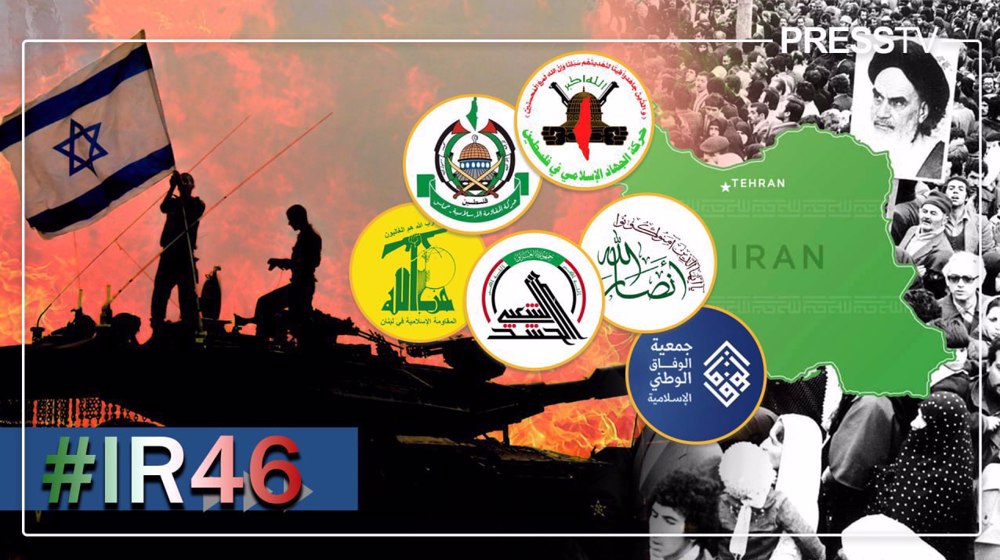
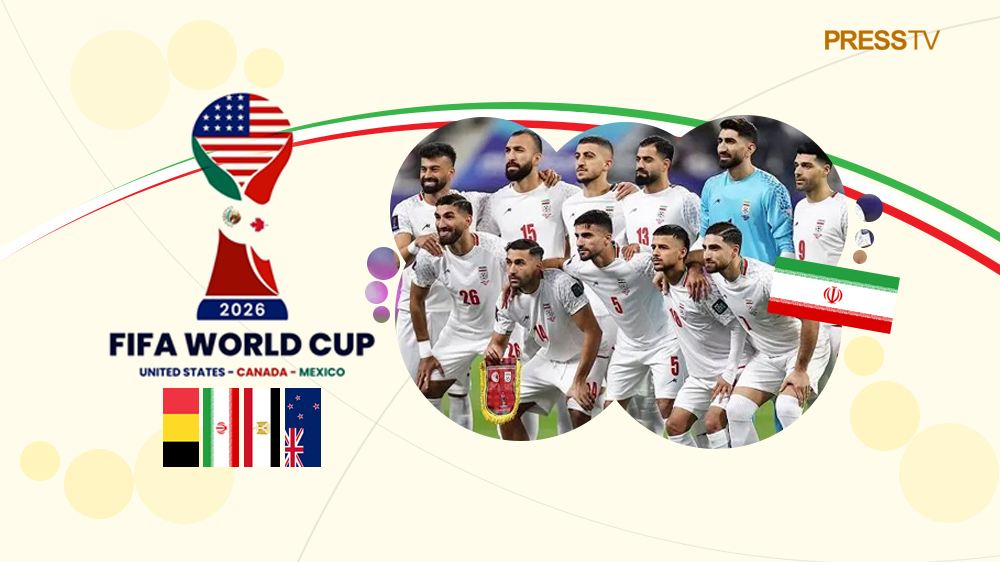

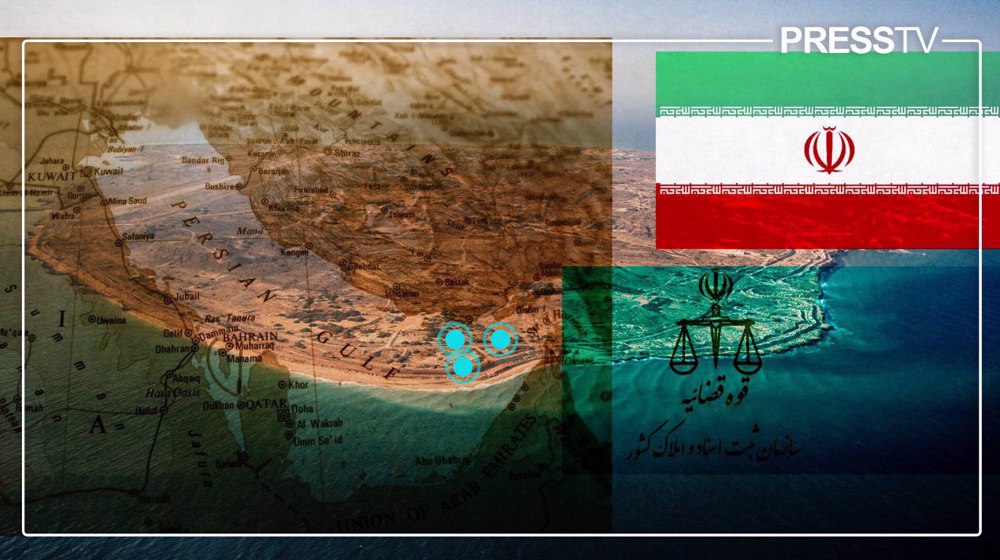



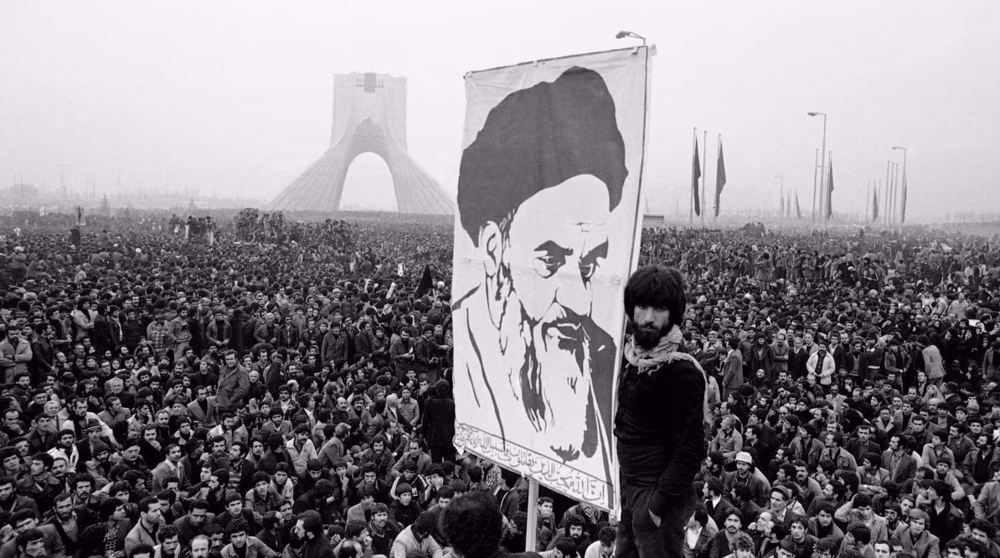
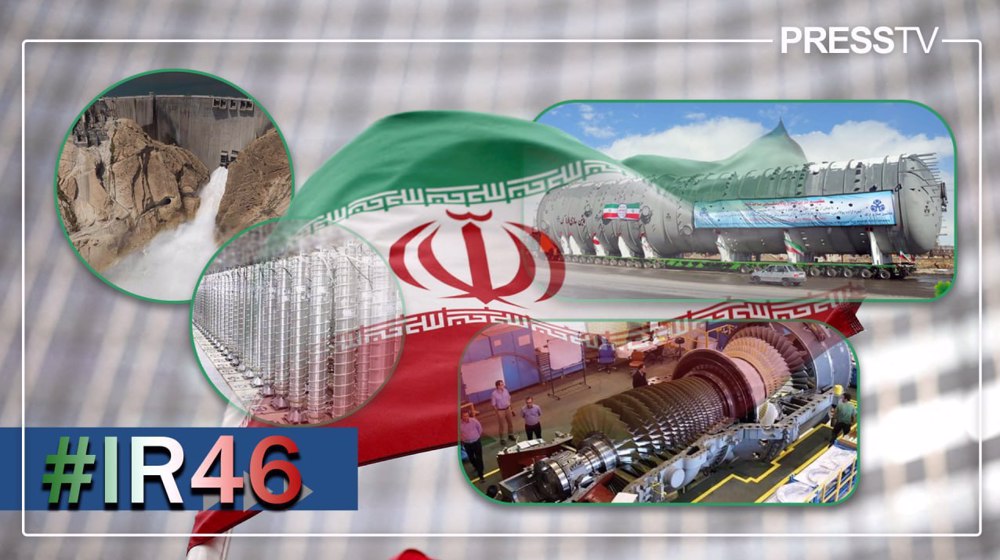
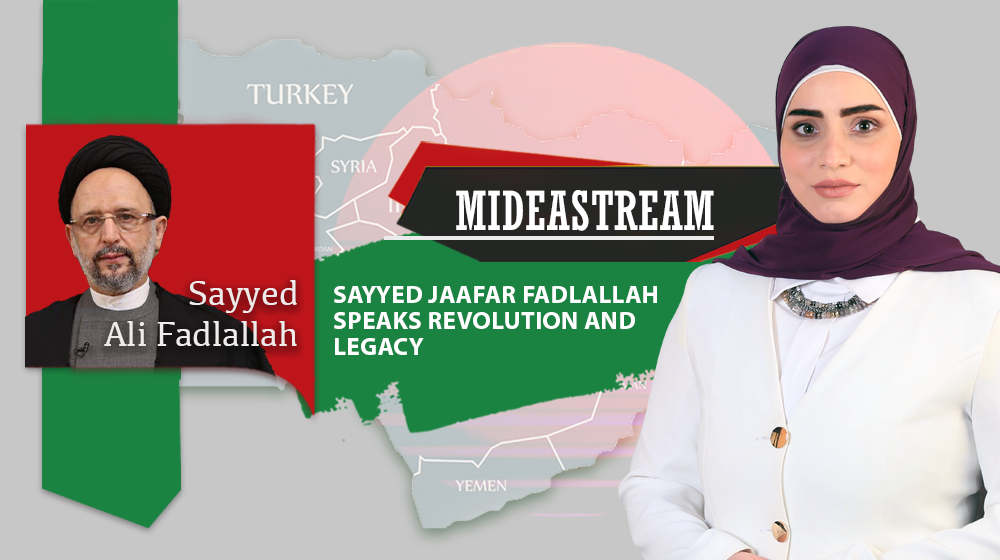
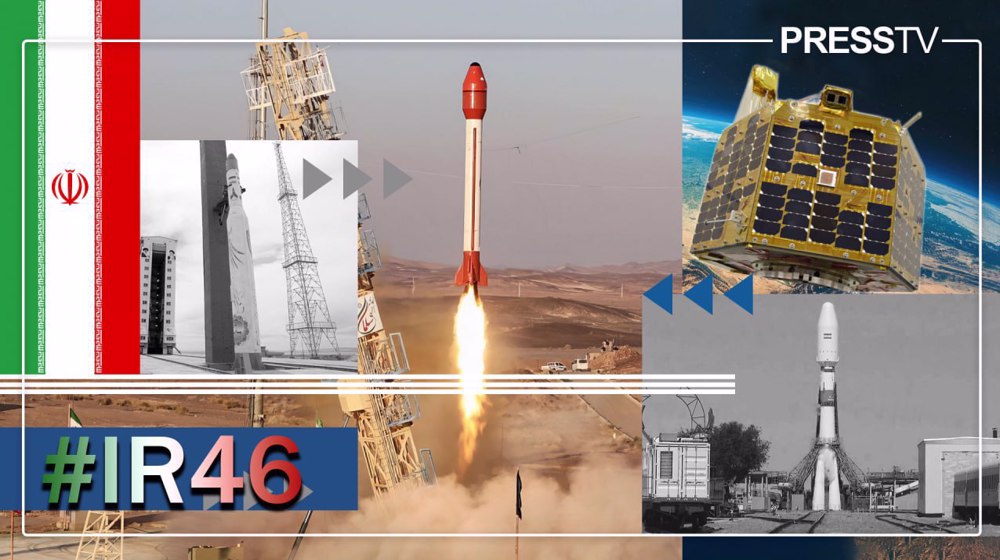
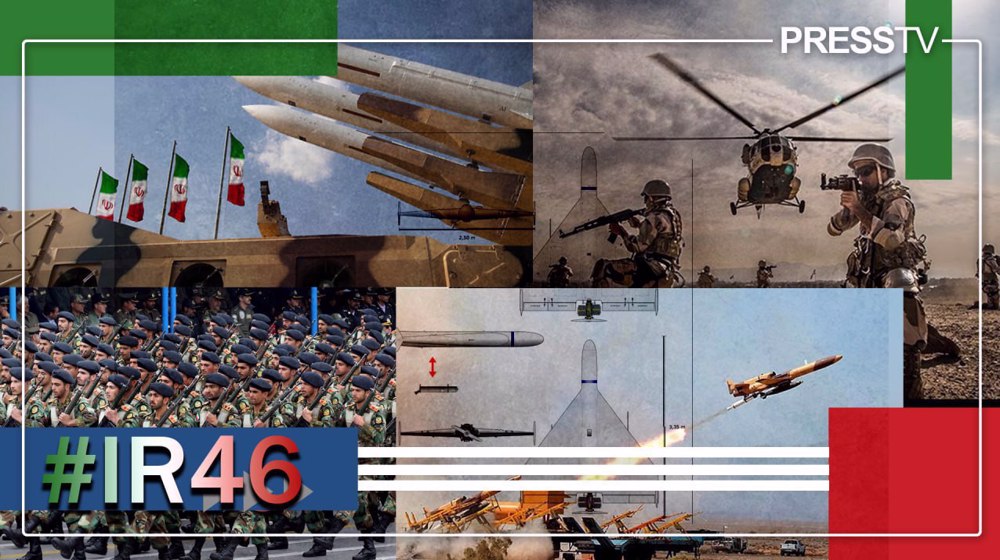

 This makes it easy to access the Press TV website
This makes it easy to access the Press TV website